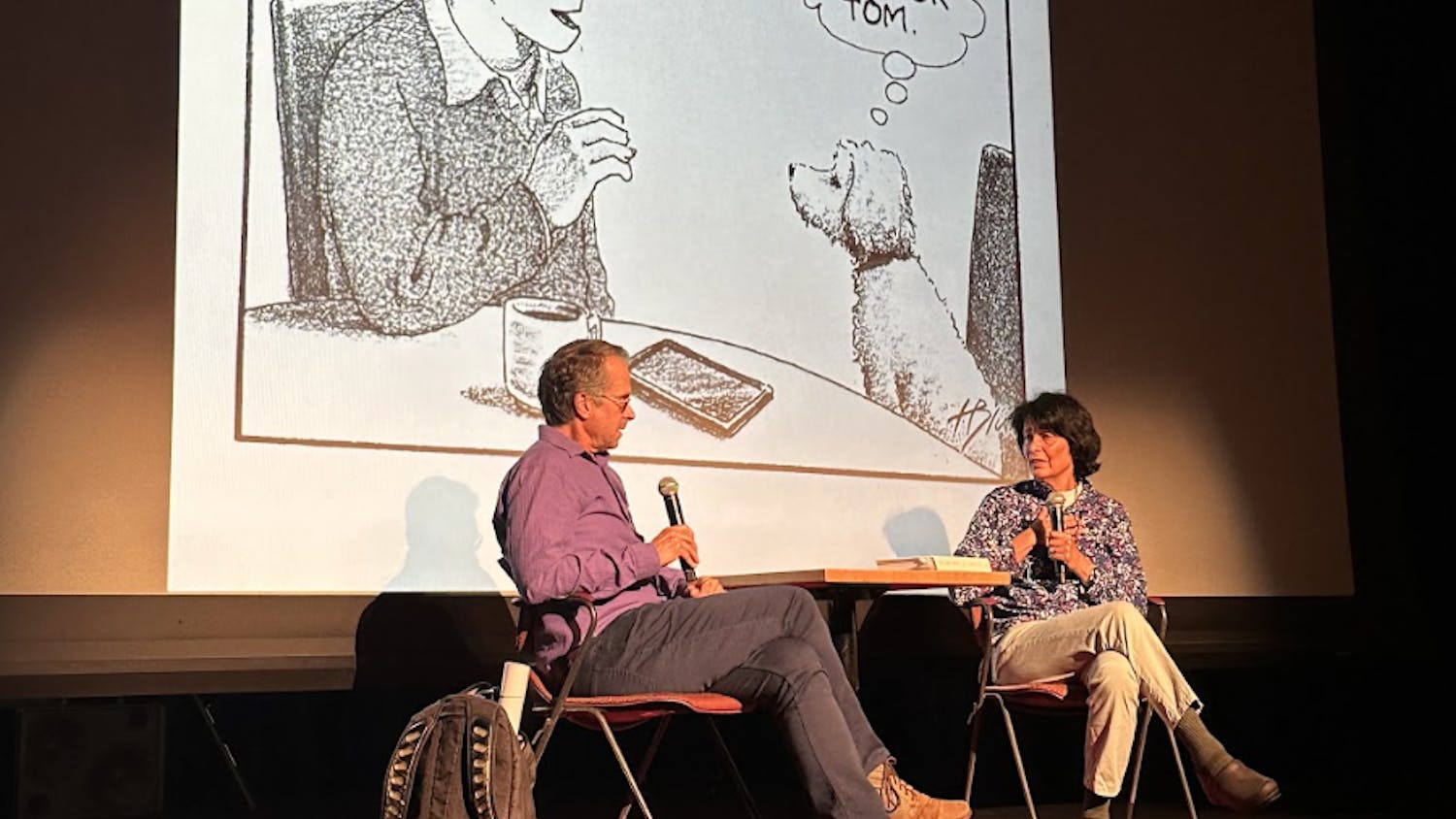Middlebury’s Charter House Coalition currently helps house and feed over 500 people per year through a number of ever-expanding programs. The non-profit has come a long way since the organization started hosting monthly community dinners back in 2004. “If someone had told any of us back in 2004 what we were getting into, we probably would have run the other way,” jokes Doug Sinclair, executive director of the non-profit.
Sinclair is one of the community members who has seen Charter House grow organically, from a time when it hosted quiet dinners where volunteers matched the number of guests, to the far-reaching shelter and meal-provider it is today.
At the beginning Sinclair was simply one of many members willing to pitch in some extra time to help those who were food insecure.“We’ve just responded to community needs as they’ve arisen and as more people have wanted to get involved,” Sinclair said. Word spread rapidly about community dinners and within the year, they were a weekly event. In 2005, the organization rented its first apartment to help a family who needed shelter, commencing the Charter House’s housing program. By 2007, the entire apartment building was under Charter House ownership.
The economic downturn in 2008 created a crisis in supplying enough emergency beds and meals. The back portion of the Charter House building was opened because it was empty at the time, but now welcomes around 20 guests per night during the winter months and dozens more for community lunches and breakfasts.
As the organization grew, management demands increased along with it. Prior to his relocation to Vermont 12 years ago, Sinclair worked as a chemistry and physics research manager developing electronic and photonic devices.
“Managing a volunteer organization is very different than managing most kinds of commercial operations, but managing research has a lot in common with managing volunteers because you’re managing a lot of people each bringing their own talents and ideas,” Sinclair said of his experience. Indeed, the volunteer basis of Charter House makes it unique. “We have not discovered any other organization that has this many volunteers,” said Sinclair. Over 950 volunteers participate annually in Charter House programs, 30 percent of which are college students. The number of hours volunteers collectively contribute totals to the amount of 12 full-time paid staff, saving the organization hundreds of thousands of dollars each year.
Apart from the college and its students, numerous church groups and other service organizations have been integral to the continued operation of the Charter House. Many volunteers choose to come in for a couple hours a week, but Sinclair’s weekly commitment ranges from 15-20 hours in the slower summer months, and far beyond 40 if the College is out of session but the winter shelter is open.
“To some extent my job is to plug the holes,” Sinclair said. “The management team has to jump in any time something comes up that isn’t covered elsewhere.” Thus, there is no one thing Sinclair does on a day to day basis. His responsibilities range from budget concerns to large-scale rethinking of the organization’s programs, to everyday staffing of the shelter. Sinclair is the first to admit that the financial tasks and other details are not his favorite part of his role.
“The management kind of things you do because they need to get done,” he said, “The part I enjoy most is working with volunteers and working with the folks we’re serving. There’s so much energy in people who come work here. It makes it a lot of fun for me.” Sinclair particularly likes the engagement from student volunteers who help out frequently in all of the Charter House’s programs, including the warming shelter, fund-raising, community meals and farm-to-table gardens. Student initiatives have also been formative in the organization’s development. Sunday Grill Night, conceived of and executed by the Men’s Rugby Team this past fall, has been a huge success and helped accomplish the Charter House’s goals of providing at least one meal for community members every day of the week. Sinclair’s interest in working with students also manifested itself in his other occupation as a chemistry and physics teacher at state colleges, a position he retired from just last May. He enjoys being around those who are still figuring out what their life will entail, a situation he himself experienced upon his move to Vermont.
When he moved here with his wife, the change in location was the only detail of which he was certain. Sinclair was drawn to Middlebury because his son attended college here, graduating in the early 90's.
"The first thing was to move to Vermont, the second was: what am I going to do?" Sinclair recalls. “I decided to take a year to explore different possible things to do.” His volunteer work developed in the background as he continued teaching until it became what he calls his “full-time hobby.” He reflects that his own involvement with the Charter House has developed parallel to the growth of the organization itself.
“The reason we’re still involved is because we found out how much value it brings to the folks we’re serving but also brings a lot of value to each of us and so many volunteers continue to say, ‘gee, I get more out of it than I put into it.’” Though Sinclair admits that recent discussion has turned towards a transition of power, he insists he will continue to be a regular volunteer as long as possible. In all likelihood, Sinclair’s successor will be multiple people, as the responsibilities he fulfills are fairly demanding for a single volunteer position. But this is merely a positive sign that the Charter House hopes to continue to grow into an even greater community force than it is today.
Meet Doug Sinclair: Director of Middlebury's Charter House

Comments



